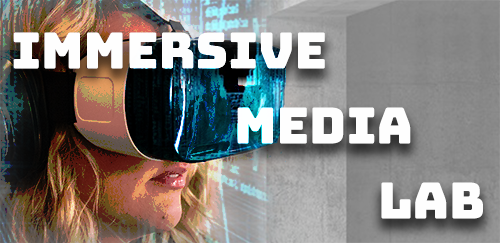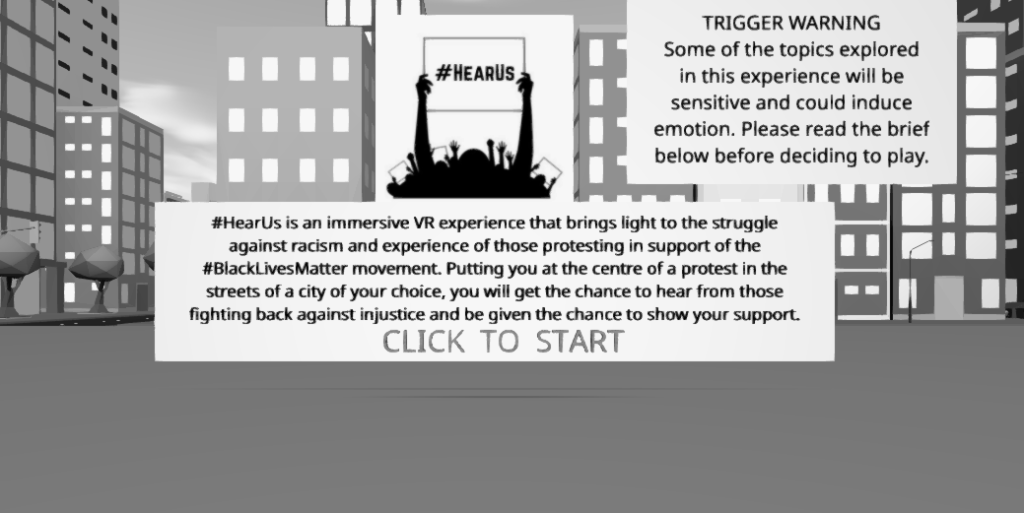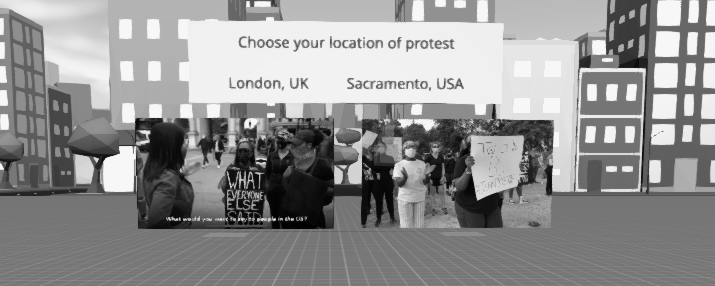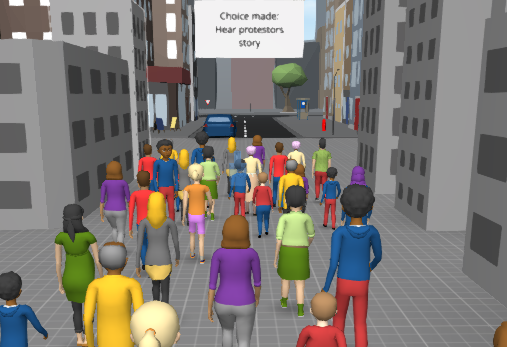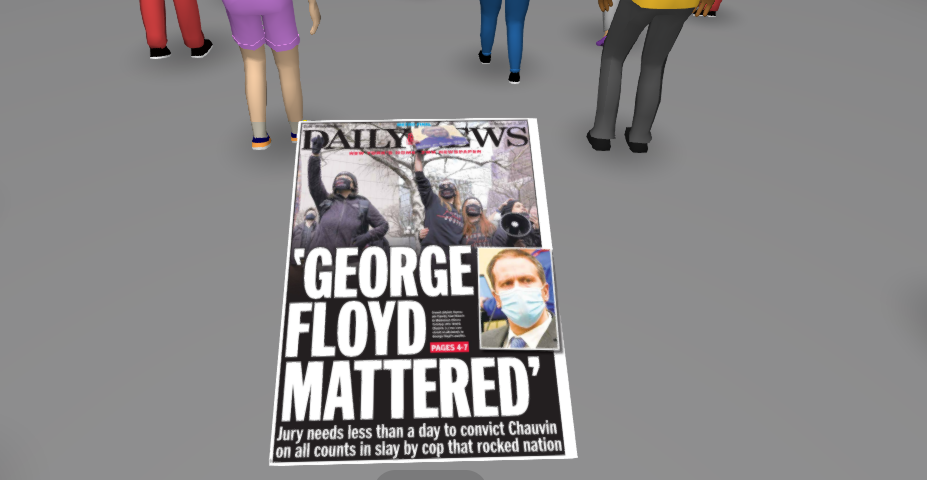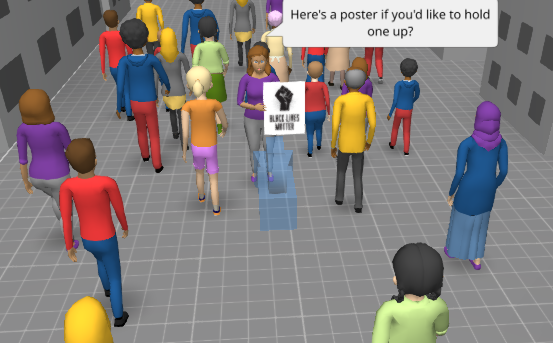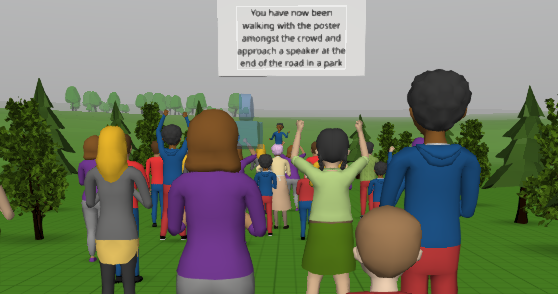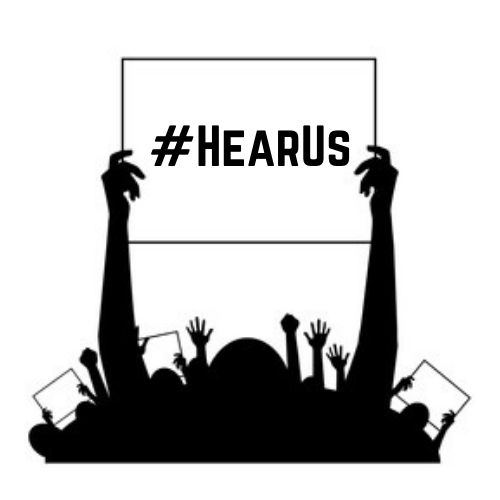
Beginning as a hashtag on social media, #BlackLivesMatter has now become a global movement, with protest as a way to highlight the racial injustices the black community have faced for centuries, and still face today. #BlackLivesMatter has moved to the streets of cities, as the racial inequality, and the lives lost at the expense of this, have seen a rise in protests globally. One of the largest sets of worldwide protests was seen in the year 2020, following the death of African American man, George Floyd. Floyd was killed after a white police officer “[…] kept his knee on Mr Floyd’s neck for at least eight minutes and 15 seconds […].” (Hill et al, 2021). This is just one example of the many instances where unwarranted aggression has been used by white police officers, against innocent black individuals – one of the key motivations behind the #BlackLivesMatter movement. #HearUs is a VR experience that places the user at a #BlackLivesMatter protest and aims to share the personal experiences of those attending, giving the user the opportunity to virtually experience what it is like to attend a protest, whilst also highlighting the acts of systemic racism and the effects of this that can still be seen in society today. In partnership with the Black Lives Matter social campaign, #HearUs will call attention to the aims of this coalition, which “[…] describes itself as a “chapter-based national organization working for the validity of black life.” (Tedeneke, 2016). As an educational tool, #HearUs opens discussions around race and inequality, giving an inside perspective of those who protest against racism – a topic that needs to be discussed, and heard.
One of the central ambitions of #HearUs is to bring light to the stories of the black community who are experiencing racism to this day, ensuring the voices of those suffering are heard. In aiming to achieve this in a virtual protest setting, the user should develop an understanding of the motivations behind the #BlackLivesMatter movement and become a virtual, yet active, participant in supporting this. The potential for immersive experiences to be a beneficial tool for social change is recognized by Social Change UK (2020a) who suggest “[…] by changing our realities and the world around us, virtual […] reality can not only educate people on the impact of a wide range of social issues but […] motivate people to take action and make changes.”
